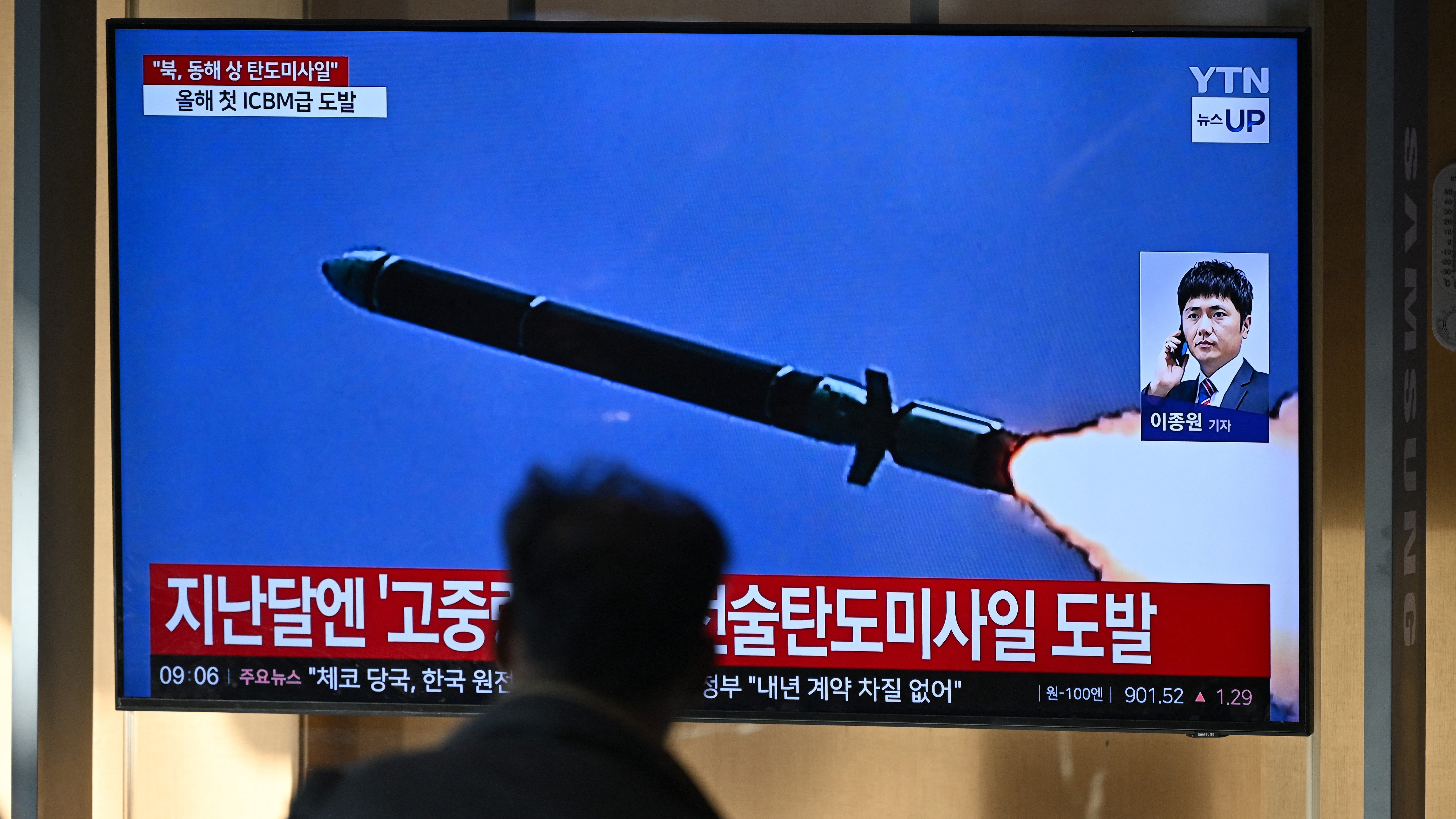North Korea launches intercontinental ballistic missile to space, reaches record altitude
It comes amid growing concern by the U.S. and NATO about North Korean military activities.

North Korea reportedly reached space on Wednesday with its first intercontinental ballistic missile (ICBM) launched in nearly a year.
The ICBM's launch on Oct. 30, just days before the U.S. federal election on Nov. 5, was likely not coincidental, according to the Associated Press. The governments of U.S. and Japan both confirmed the launch, which flew for 86 minutes and soared to a record of 4,350 miles (7,000 km), the Washington Post stated, roughly 1,000 miles above the previous mark.
North Korea, which calls itself the Democratic People's Republic of Korea, has offered increasing support of the internationally condemned Russian invasion of Ukraine. This action has caused concern with the United States and its allies. For example, American, Japanese and South Korean troops have conducted several military exercises in recent months in the Pacific Ocean, the Post added, which the North Korean government sees as antagonistic actions.
Japan and South Korea (officially called the Republic of Korea) are both allies of the United States as well as signatories of the American led-Artemis Accords that, in part, aim to establish peaceful norms for space exploration.
Recently, both the United States and the North Atlantic Treaty Organisation (which includes Americans as core partners, and engagement with Japan and South Korea) said North Korea's decision to send roughly 10,000 troops to Russia is a "very, very serious issue" that could have ripple effects in the Pacific area as well as Europe, the Post's report stated.
The type of ICBM used this time has not yet been confirmed in media reports. North Korea's last such launch in December 2023 was a Hwasong-18 missile that has been used at least three times in test fires, Al Jazeera stated.
North Korea, a reclusive communist state, has pursued an isolationist policy for about the last 80 years. Its citizens are said to lack basic services, according to Britannica. The country is pursuing closer ties with Russia in recent years.
Breaking space news, the latest updates on rocket launches, skywatching events and more!
For example, in 2023 Russian prime minister Vladimir Putin held a summit with North Korean leader Kim Jong Un at Russia's Vostochny Cosmodrome spaceport, after Russia's invasion of Ukraine that started in February 2022. Aside from severe problems for Ukraine residents, the invasion sparked ruptures in most space exploration projects involving Russia.
Russia remains a partner in the International Space Station (ISS) for policy and practical reasons (the station cannot be broken apart, and Russia's supply ships and Moscow mission control help keep the complex going.) That said, Russia plans to leave the ISS partnership no earlier than 2028 to pursue a separate space alliance with China, which cannot engage in bilateral activities with NASA and the United States unless Congress gives express permission. The rest of the ISS partnership wants to remain through 2030, at the least.

Elizabeth Howell (she/her), Ph.D., was a staff writer in the spaceflight channel between 2022 and 2024 specializing in Canadian space news. She was contributing writer for Space.com for 10 years from 2012 to 2024. Elizabeth's reporting includes multiple exclusives with the White House, leading world coverage about a lost-and-found space tomato on the International Space Station, witnessing five human spaceflight launches on two continents, flying parabolic, working inside a spacesuit, and participating in a simulated Mars mission. Her latest book, "Why Am I Taller?" (ECW Press, 2022) is co-written with astronaut Dave Williams.
